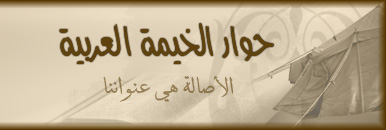|
مجلة الخيمة
 حوار الخيمة حوار الخيمة
 دليل المواقع دليل المواقع
 نخبة المواقع نخبة المواقع
 Muslim Tents Muslim Tents
|
التسكين المجاني
 التسكين المدفوع التسكين المدفوع
 سجلات الزوار سجلات الزوار
 بطاقات الخيمة بطاقات الخيمة
 للإعلان في الخيمة للإعلان في الخيمة
|
| الأسئلة الشائعة | قائمة الأعضاء | التقويم | البحث | مواضيع اليوم | جعل جميع المنتديات مقروءة |
|
#5
|
|||
|
|||
|
The Forth Pillar of Islam Fasting Every year in the month of Ramadan, all Muslims fast from first light until sundown, abstaining from food, drink, and sexual relations. Those who are sick, elderly, or on a journey, and women who are pregnant or nursing are permitted to break the fast and make up an equal number of days later in the year. If they are physically unable to do this, they must feed a needy person for every day missed. Children begin to fast (and to observe the prayer) from puberty, although many start earlier. Although the fast is most beneficial to the health, it is regarded principally as a method of self purification. By cutting oneself off from worldly comforts, even for a short time, a fasting person gains true sympathy with those who go hungry as well as growth in one's spiritual life. The Fifth Pillar of Islam The annual pilgrimage to Makkah - the Hajj - is an obligation only for those who are physically and financially able to perform it. Nevertheless, about two million people go to Makkah each year from every corner of the globe providing a unique opportunity for those of different nations to meet one another. Although Makkah is always filled with visitors, the annual Hajj begins in the twelfth month of the Islamic year (which is lunar, not solar, so that Hajj and Ramadan fall sometimes in summer, sometimes in winter). Pilgrims wear special clothes: simple garments which strip away distinctions of class and culture, so that all stand equal before God. The rites of the Hajj, which are of Abrahamic origin, include circling the Ka'ba seven times, and going seven times between the mountains of Safa and Marwa as did Hagar during her search for water. Then the pilgrims stand together on the wide plain of Arafa and join in prayers for God's forgiveness, in what is often thought of as a preview of the Last Judgment. In previous centuries the Hajj was an arduous undertaking. Today, however, Saudi Arabia provides millions of people with water, modern transport, and the most up-to-date health facilities. The close of the Hajj is marked by a festival, the Eid al-Adha, which is celebrated with prayers and the exchange of gifts in Muslim communities everywhere. This, and the Eid al-Fitr, a feast-day commemorating the end of Ramadan, are the main festivals of the Muslim calendar.
__________________
   |
«
الموضوع السابق
|
الموضوع التالي
»
| عدد الأعضاء الذي يتصفحون هذا الموضوع : 1 (0 عضو و 1 ضيف) | |
| خيارات الموضوع | بحث في هذا الموضوع |
| طريقة العرض | |
|
|

.gif)









 النمط المتطور
النمط المتطور